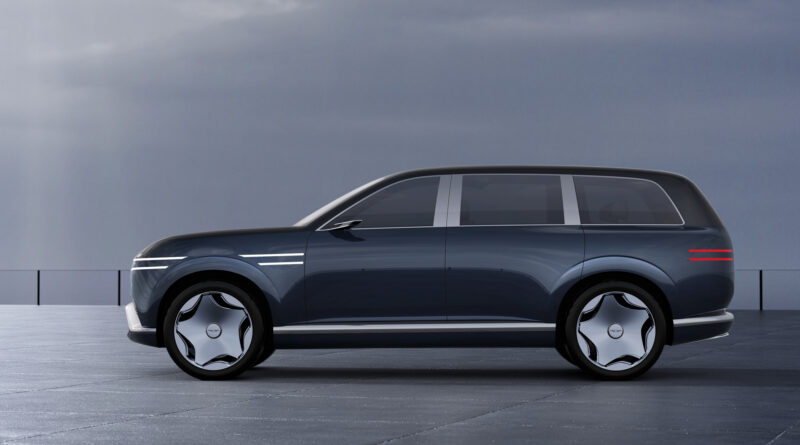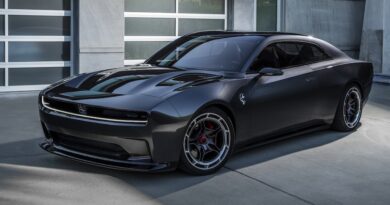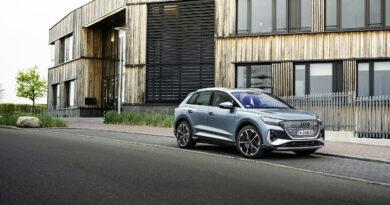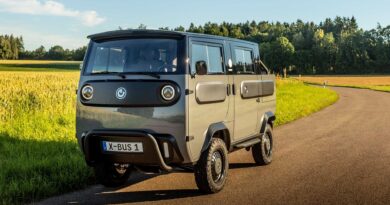New York show: Genesis Neolun concept previews all-electric GV90 large SUV as Hyundai-owned luxury brand thinks big and very bold
Strip away the oddball name and sleek show car design touches and the Genesis Neolun concept unveiled in New York this week gives a strong hint of the upcoming GV90 battery electric large SUV.
And it could be one of the only mainstream cars on the market with rear-hinged back doors – similar to those used on a Rolls-Royce.
Set to compete with big banger wagons such as the BMW X7, BMW iX and Mercedes-Benz EQS SUV, the Genesis GV90 will be the largest and most opulent model yet from the fledgling Hyundai-owned luxury brand.
Riding on the Hyundai Group’s next generation electrical architecture, the Neolun – the name combines the Greek “neo,” or new, and the Latin “luna,” which means moon – also previews some interesting design elements.
Chief among them those rear-hinged back doors that mean there is no need for the B-pillar that normally holds the roof up in the middle of the car.
READ MORE: 2024 Genesis GV60 Lux review: Is this mind-bending small electric SUV really worth all this money?
READ MORE: Genesis X Convertible concept sheds its roof for EV excitement
READ MORE: Genesis GV70 Electrified review
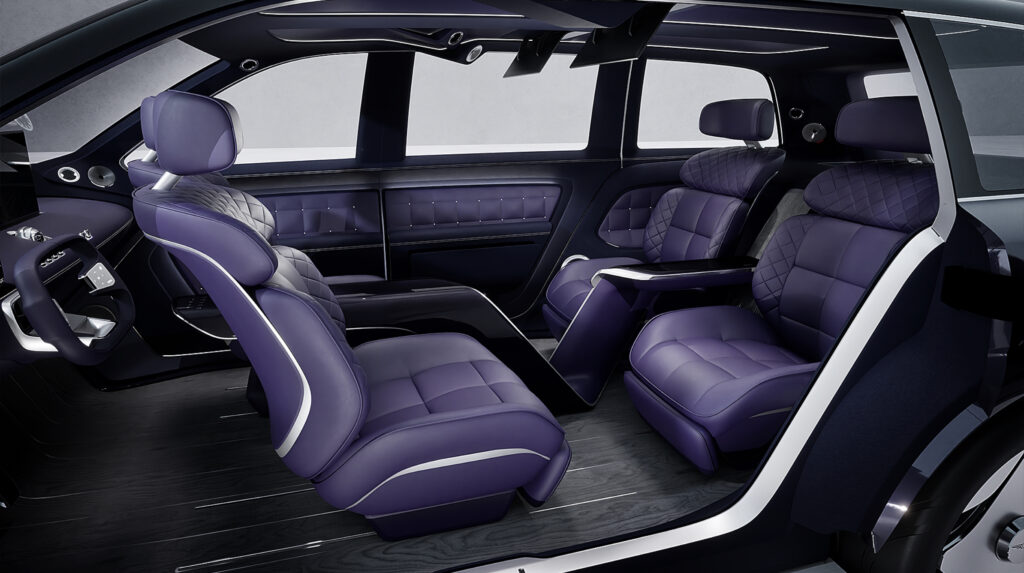
That sort of treatment is common on show cars, but Genesis is hinting that it could also flow through to the production version of the Neolun, to be known as GV90.
Referring to them as coach doors the company says they have “reached a level where its application to production vehicles is now feasible”.
Those sentiments were backed up by former Holden and Bentley designer SangYup Lee, the man now heading up Genesis styling. In New York for the reveal of the car he said that the large SUV meets the all-important side impact and rollover protection standards that have typically made it tough for so-called suicide doors on bigger vehicles.
Another cool feature of the Neolun are its dual frunks.
Instead of having to lift the bonnet to access the storage binnacle beneath, there are two wings that allow access to one half of the frunk.
Disappointingly, Lee is less positive about those making it to production, at least for the GV90.
The Neolun’s clean design also reveals more functionality the more you interact with it.
Open the doors, for example, and sizeable side steps appear from underneath the car, providing a step to get in.
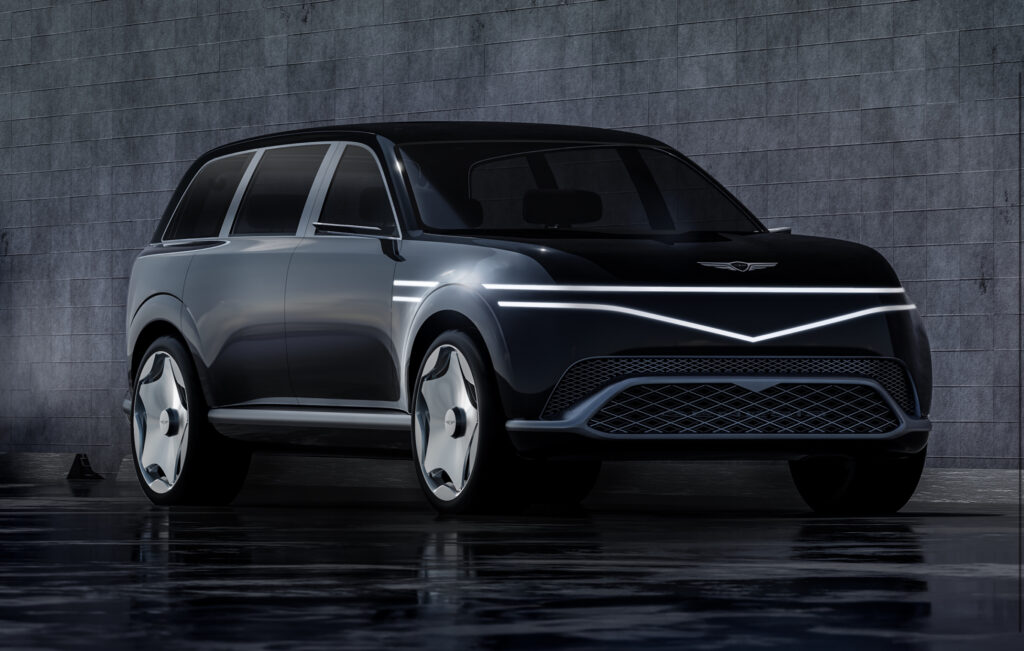
The clean roof design also houses retractable roof rails that can be electronically raised when you want to instal roof racks.
And LED lights are all around and cleverly integrated into the bumpers.
Inside, the Neolun concept gets ambient lighting and huge screens, including a massive infotainment screen across the dash and dual rear screens that fold down from the roof.
Classy finishes include Royal Indigo cashmere and Purple Silk leather dyed with organic pigments.
The Neolun also has next generation heating inspired by Korean underfloor heating known as Ondol.
Heating pads on the doors, dashboard, wooden floor, seatback and the sides of the consoles provide a radiant warmth to heat the cabin.
There’s also a high-end audio system that includes speakers throughout the cabin designed to create the audio dynamics of a concert hall.
One thing we don’t know much about is the electrical architecture beneath the Neolun.
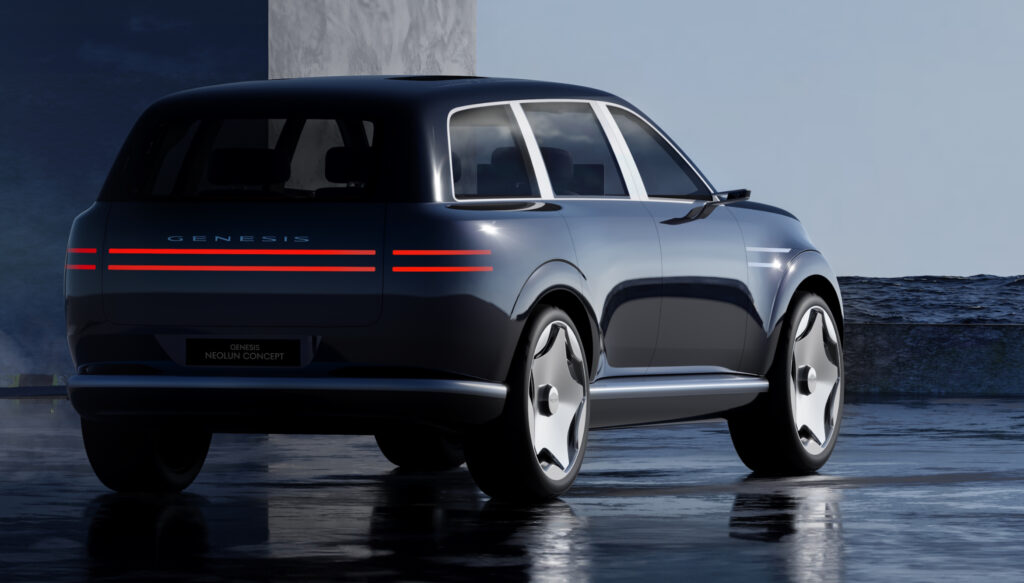
Rather than the E-GMP architecture that underpins everything from the Hyundai Ioniq 5 and Genesis GV60 to the Kia EV6 and EV9, the Neolun sits on the upcoming eM platform that will be spread far and wide across the Hyundai Group.
It’s still expected to use an 800V electrical architecture for faster charging.
And, of course, there will be the availability of two electric motors for all-wheel drive.
The Genesis GV90 is expected to go into production in 2025.

